You can search for the name of your product and/or trademark on Chinese e-commerce websites. You can also use your product image to search for counterfeit goods with a similar appearance.
This post was first published in CJO GLOBAL, which is committed to providing consulting services in China-related cross-border trade risk management and debt collection. We will explain how debt collection works in China below.
1. What e-commerce websites in China may sell counterfeit goods?
Unlike in other countries, in China, almost all e-commerce transactions are finished on several specific e-commerce platforms.
Few Chinese e-retailers will build an e-commerce website of their own to sell their products. They always choose to set up shops on a few important e-commerce platforms.
This means that you can find almost all online counterfeit goods in China on these several e-commerce platforms.
The major e-commerce platforms and their share of the total online retail market in 2021 are as follows:
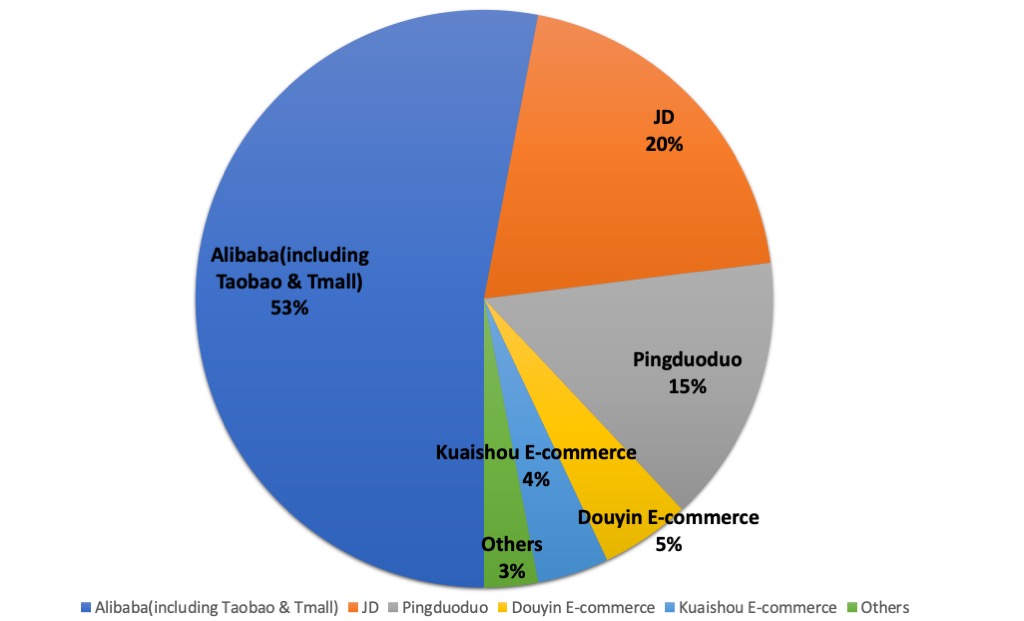
Alibaba(including Taobao and Tmall): 53%;
JD: 20%
Pingduoduo: 15%
Douyin E-commerce: 5%
Kuaishou E-commerce: 4%
Others: 3%
2. Search by name
You can search for the name of your product or your trademark on these e-commerce websites.
Sometimes pirates will claim to consumers that their products are the original and not counterfeit goods. In this case, they will display your product name in their product description.
Sometimes pirates do not hide the fact that their products are counterfeit goods. However, they will also display your name so that consumers can verify that their products are similar to the original.
In this case, if you search for your product name or trademark name, you are likely to find these counterfeit products.
Sometimes, however, you may need to know how Chinese consumers refer to your product or trademark in Chinese. This will help you better find counterfeit goods.
For Taobao, please open www.taobao.com first, then type keywords in the search box and retrieve.
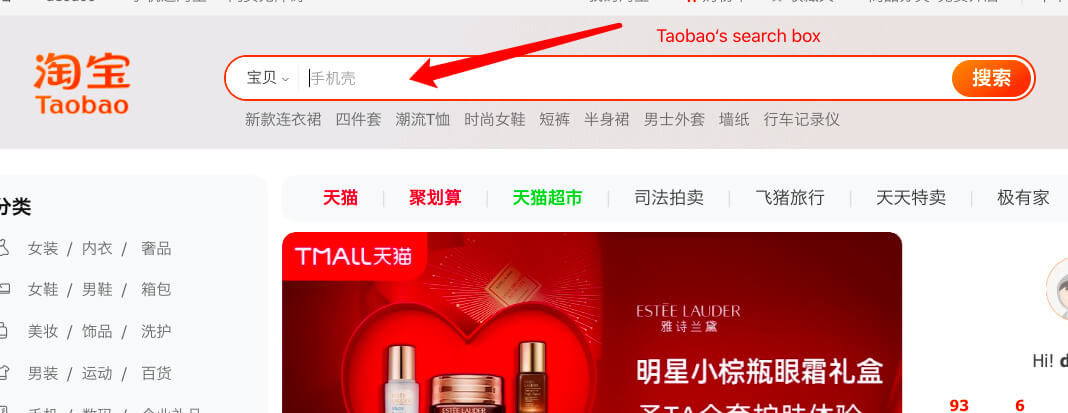
For Tmall, please open www.tmall.com first, then type keywords in the search box and retrieve.
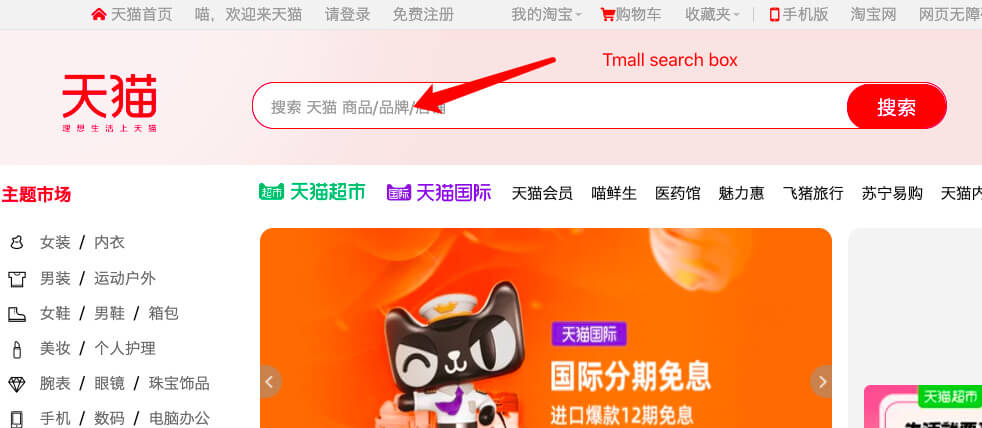
For JD, please open www.jd.com first, then type keywords in the search box and retrieve.
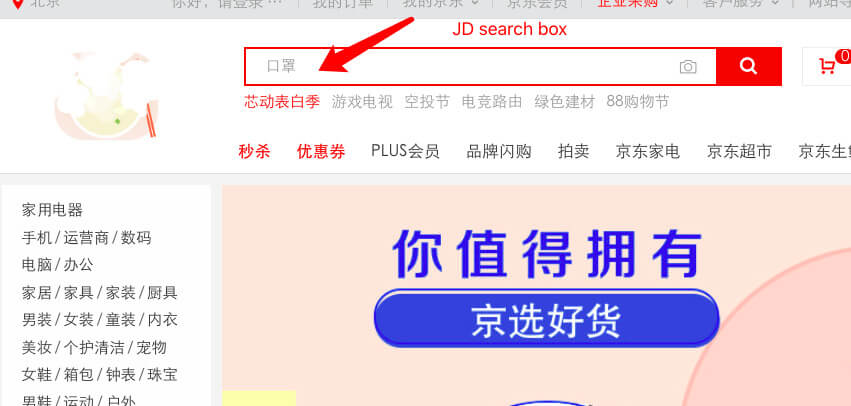
3. Image Recognition
You can use the image search service when you don’t know how to search for counterfeit goods that infringe on your intellectual property on Chinese e-commerce websites.
Mainstream e-commerce websites in China, such as Taobao, Tmall, JD, provide image search services. This means that as long as you upload a picture of your product to the search box of an e-commerce website, they will provide you with all products for sale that look similar to your product.
In this way, you can get a rough idea of whether there are counterfeit goods similar to your product on that e-commerce website.
However, this function is currently only available on the phone apps of these e-commerce sites and you will need to install their apps.
Take Taobao for example. When you open the app, you can see a camera icon in the search box at the top.
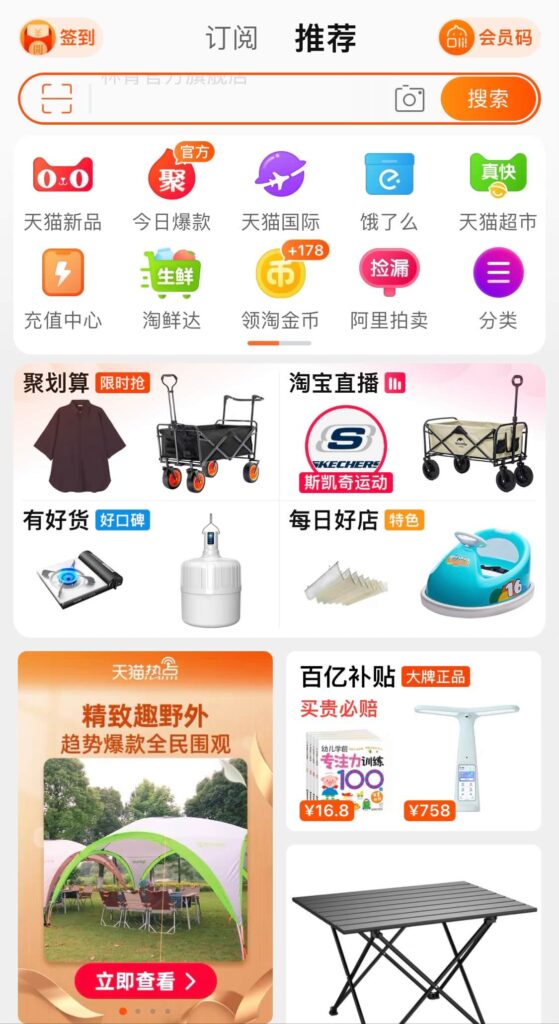
After clicking on this icon, you can take a picture of your product.
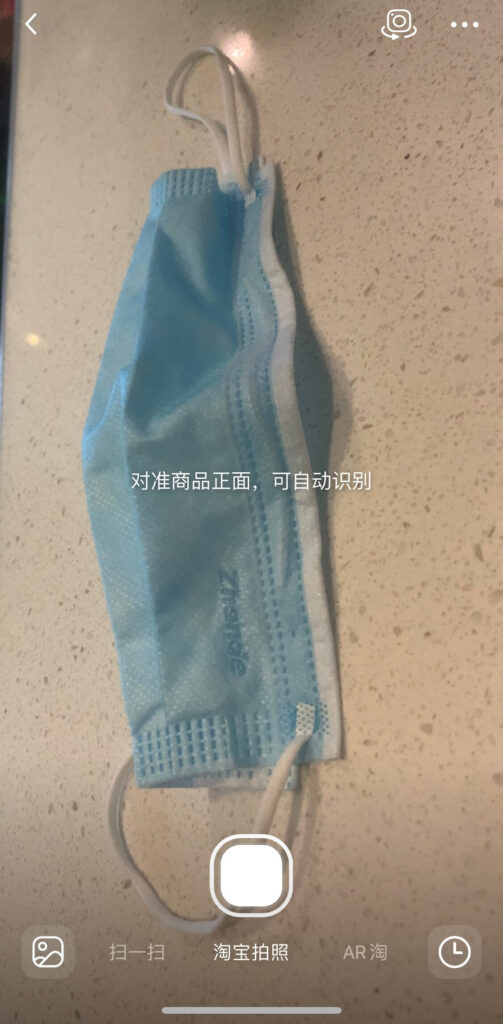
Then, Taobao will show all products similar to it in the search results.

Other e-commerce apps have the same function and can be launched by clicking on the camera icon in the search box at the top.
* * *
Do you need support in cross-border trade and debt collection?
CJO Global's team can provide you with China-related cross-border trade risk management and debt collection services, including:
(1) Trade Dispute Resolution
(2) Debt Collection
(3) Judgments and Awards Collection
(4) Bankruptcy & Restructuring
(5) Company Verification and Due Diligence
(6) Trade Contract Drafting and Review
If you need our services, or if you wish to share your story, you can contact our Client Manager Susan Li (susan.li@yuanddu.com).
If you want to know more about CJO Global, please click here.
If you want to know more about CJO Global services, please click here.
If you wish to read more CJO Global posts, please click here.
Photo by Tamanna Rumee on Unsplash
Contributors: CJO Staff Contributors Team










